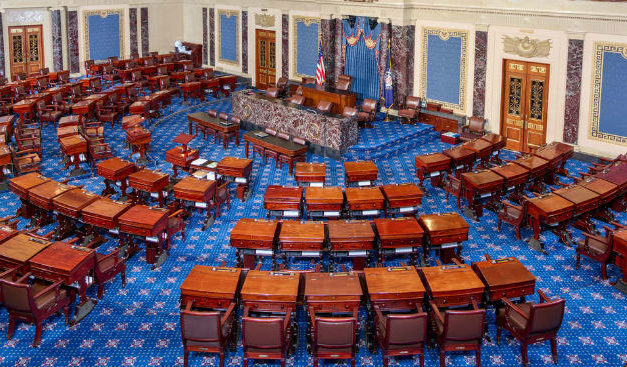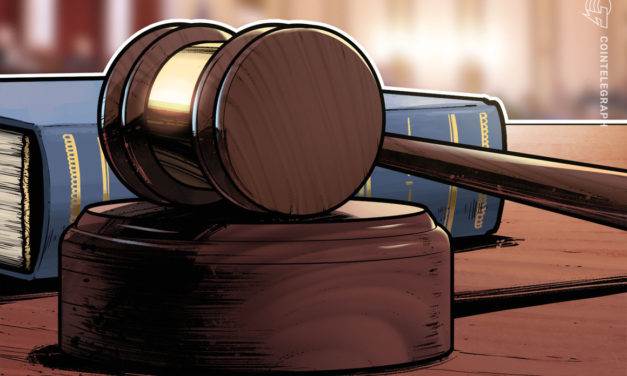Lummis-Gillibrand crypto bill comprehensive but still creates division
It was first reported before Christmas that Wyoming Senator Cynthia Lummis planned to introduce a comprehensive crypto regulation bill. The Republican Lummis was already known for her pro-crypto stance and announced right away that she was looking for a Democratic co-sponsor. New York Senator Kirsten Gillibrand, who had not previously been known to have a strong position on cryptocurrency, was named as the co-sponsor in March. The highly awaited Responsible Financial Innovation Act (RFIA) was introduced in the United States Senate on June 7.The RFIA is 69 pages of text thick with legal and crypto jargon. There is an element of drama lurking behind the bill’s dry language, however, as it sets out what needs to be done and who should do it in the face of the inaction, confusion and interagency competition that characterize digital asset regulation in the United States today. Lummis and Gillibrand are well suited for the task. Lummis is a member of the Senate Banking Committee, which oversees the Securities and Exchange Commission (SEC), a main player in the drama. Gillibrand is a member of the Senate Agriculture Committee, which oversees the Commodity Futures Trading Commission (CFTC) — another cast member.“I don’t think CFTC is the primary regulator” of the digital asset market, Gillibrand said on a Washington Post livestream on June 8. “They just have the obligation to regulate Bitcoin and Ether, the majority of cryptocurrencies today. But the SEC has an enormous responsibility. […] And so we aren’t minimizing the role of the SEC, but we are empowering both regulatory agencies to begin to take this market and give it safety and soundness.”Division of laborThe two senators have said repeatedly that most altcoins are securities, as SEC Chair Gary Gensler has long held, and the RFIA continues to depend on the Howey Test to define securities. That test was introduced in a Supreme Court decision in 1946 on sales of Florida orange groves. Under the Howey Test, those orange grove sales, predominantly to buyers who were not farmers and not located in Florida and who could leave the land under the management of previous owner W.J. Howey Co., were investment contracts and thus securities under the Securities Act of 1933. The innovation in the RFIA comes from an extrapolation of the Howey Test. Lilya Tessler, head of the Sidley law firm’s fintech and blockchain group, told Cointelegraph: “The Court didn’t say oranges are securities. The Court never said what law applies to the subject of an investment contract.”For the purposes of the RFIA, the subject of an investment contract is a commodity and subject to regulation by the CFTC, unless it can be shown to be a security. And, it will be called an ancillary asset — a term that is new to crypto regulation. Tokens in an initial coin offering (ICO) were used as an example in one discussion of ancillary assets. The bill’s definition of an ancillary asset also specifies that it be fungible.Recent: Scams in GameFi: How to identify toxic NFT gaming projectsThis innovation does not remove the question of decentralization. It was decentralization, Tessler reminds, that established Bitcoin (BTC) and Ether (ETH) as commodities, in accordance with the principles William Hinman outlined in his 2018 speech that has proven so controversial. Under the RFIA, ancillary assets that are not sufficiently decentralized will have to file twice-yearly disclosures to the SEC. Patrick Daugherty, partner at Foley & Lardner, praised that solution. “It’s creative,” Daugherty told Cointelegraph. “It’s not dictated by the case law, but it coincides with traditional views about the value of periodic disclosure.” The legislation gives the CFTC regulatory authority over crypto asset spot markets, that is, crypto exchanges, which are now mainly subject to state money transmission laws. The additional layer of regulation would mean that the exchanges would be subject to CFTC rules on investor protection, handling of funds and other requirements. The Digital Commodity Exchange Act, introduced in the House of Representatives this year, also called for CFTC oversight of that market. The RFIA gives the CFTC the right to collect fees for regulation to finance its additional activities.Pay your taxes — or notA provision of the bill that is certain to please crypto users is a $200 exclusion from gross income for transactions using crypto for purchases of goods and services. This exclusion allows crypto to be used as intended without creating a taxable potential capital gain. This also is not a new idea.Mining and staking profits would be taxable when they are realized under the RFIA. This provides the clarity that Joshua and Jessica Jarret are seeking in their case against the Internal Revenue Service, Raul Garcia, certified public accountant and principal at Kaufman Rossin, pointed out to Cointelegraph.The bill orders a report on retirement investing in digital assets, another topic of recent litigation, from the Comptroller General.The floor of the U.S. Senate.The short section on decentralized autonomous organizations (DAOs) is the most complex. It establishes that DAOs are taxable business entities and incentivizes their incorporation. An exception is made when the DAO is raising funds for charity. This provision opens up “an opportunity for another state to do what Delaware and South Dakota did,” Garcia said. Those states have become hubs for the registration of other forms of business entity.The bill also directs the Secretary of the Treasury, or a delegate, to adopt guidance on a list of open questions within a year of the bill’s enactment.Do your jobThe RFIA ordered the Federal Reserve to process digital asset bank applications for master accounts “on an equitable basis” and in order of receipt. Custodia digital asset bank filed suit against the Federal Reserve Board of Governors and the Federal Reserve Bank of Kansas City on the day the legislation was introduced. Custodia, formerly known as Avanti, alleged that the Fed has broken the law by holding its application for a master account for 19 months without taking action. “It literally takes an act of Congress to get them to do their job,” said Daugherty, emphasizing that the bill directs the Fed to act but does not tell it what to decide.The bill devotes an entire chapter to “Responsible Interagency Coordination,” where it calls for a variety of reports to be drawn up. Among others, it orders regular reports on energy consumption from the Federal Energy Regulatory Commission that requires the SEC and CFTC to consult with the Treasury and the National Institute of Standards and Technology on cybersecurity. It directs the CFTC and SEC to develop a proposal for a self-regulatory organization. A ten-member advisory committee is ordered to be formed. It will issue annual reports on developments in the digital asset industry.Response to the billThere was a broad consensus among observers that the bill is favorable to crypto. “It’s really bipartisan,” Daugherty said of the RFIA. “You can see the compromises.” Lummis has repeatedly expressed her belief that crypto is not partisan. She said during the June 8 livestream, which also featured CFTC Chair Rostin Behnam, that Gensler had told her he had not read the bill. Senate Banking Committee Chairman Sherrod Brown told Bloomberg at about the same time that he had not read the bill either, but he “wasn’t inclined to support it.”At The Wall Street Journal’s CFO Network Summit a week later, Gensler commented when asked about the bill: “We don’t want to undermine the protections we have in a $100 trillion capital market.”Blockchain Association executive director Kristin Smith called the bill a “milestone moment” in a statement. She continued, “We thank Senators Lummis and Gillibrand for engaging with industry on this bill, and we look forward to continuing to work with them as we refine the language and advance the bill through the process.”Recent: From games to piggy banks: Educating the Bitcoin ‘minors’ of the futureBetter Markets president and CEO Dennis M. Kelleher released a statement, saying the bill “appears to be designed to disarm the public by making them think crypto will be properly regulated while the industry and the insiders know that is simply not true.” Americans for Financial Reform senior policy analyst Mark Hays said in a statement, “Just because an industry that pumps millions into the political process claims it is innovative does not mean it deserves its own special rulebook.”Senate Agriculture Committee chair Debbie Stabenow and ranking member John Boozman are also expected to introduce legislation on crypto regulation. That bill is reported to favor the CFTC to take the lead in regulation.
Čítaj viac






